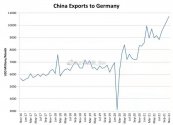PeoplesPoster
Junior Member
lol, this is hilarious.
Question should be, do Chinese investors even want to put money into such a unstable and hostile country.
Question should be, do Chinese investors even want to put money into such a unstable and hostile country.
India is considering easing scrutiny on certain foreign direct investment, according to people familiar with the matter, after rules mainly aimed at China created a bottleneck for inflows.
Currently, Prime Minister Narendra Modi’s government scrutinizes all investment proposals from companies that are either based in countries that share a land border with India or have an investor from one of these nations. It is now considering exempting proposals where the so-called beneficial ownership is less than 10%, which means the investor may be from a neighboring country but holds only a small stake in the firm proposing the investment.
The move is being considered after proposals worth $6 billion were stuck amid the red tape, the people added, asking not to be identified discussing private deliberations. The proposal could be approved as early as the next month.
The government had imposed curbs on such investments amid a bloody border standoff with China and also avert risks of opportunistic takeovers. The move slowed down the approval process with proposals from the neighboring nations including China and Hong Kong piling up.
An email and text message sent to the trade and industry ministry spokesperson remained unanswered.
Apart from delaying, the restriction had also complicated deal-making for investors. Relaxing the rules will broaden the pool of investors that capital-hungry Indian firms can tap, as local firms increasingly turn to large global investors to fund their growth.
As of Nov. 2021, over 100 proposals are awaiting clearance from the government, with around a quarter of them of over $10 million each.

